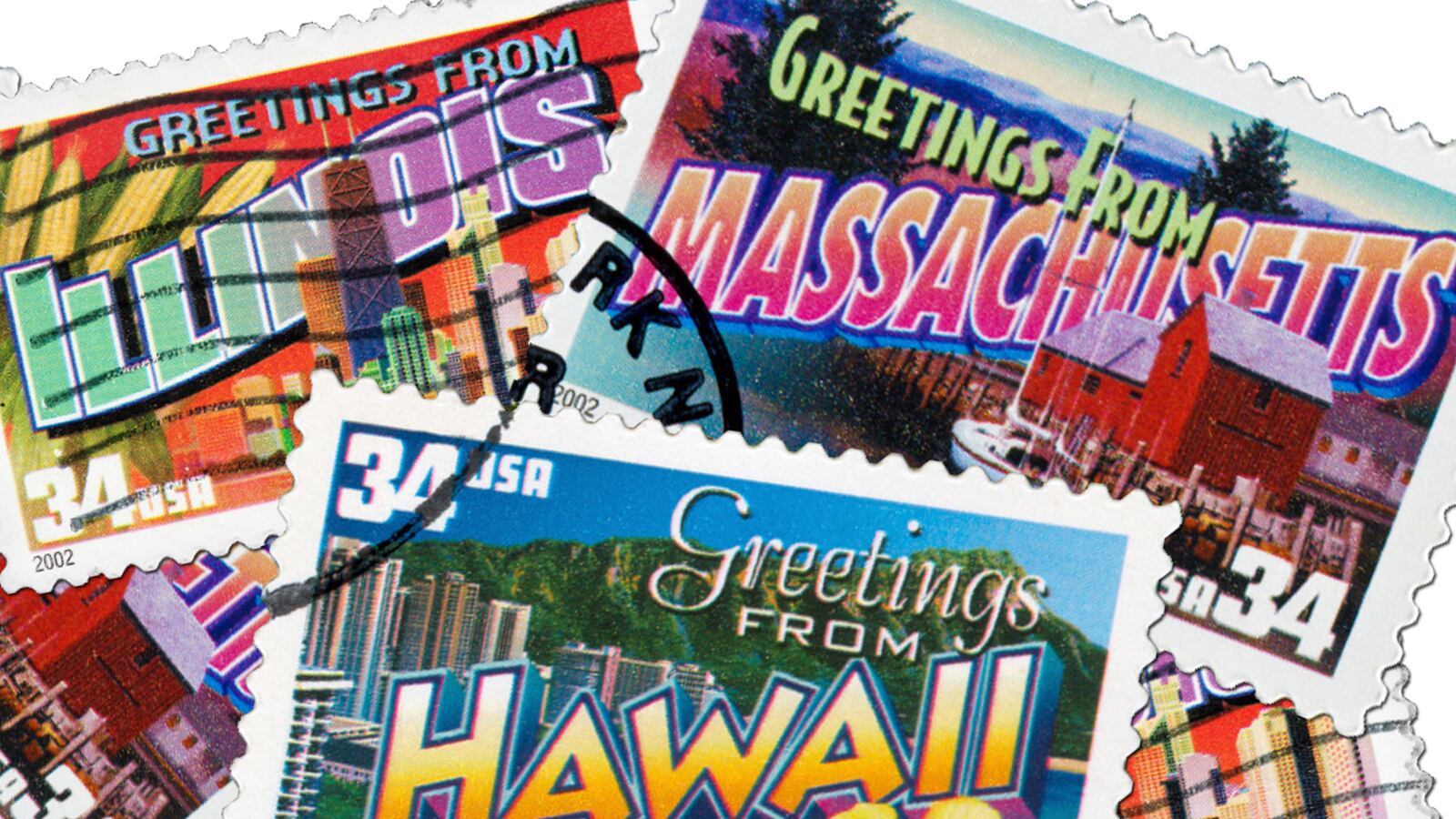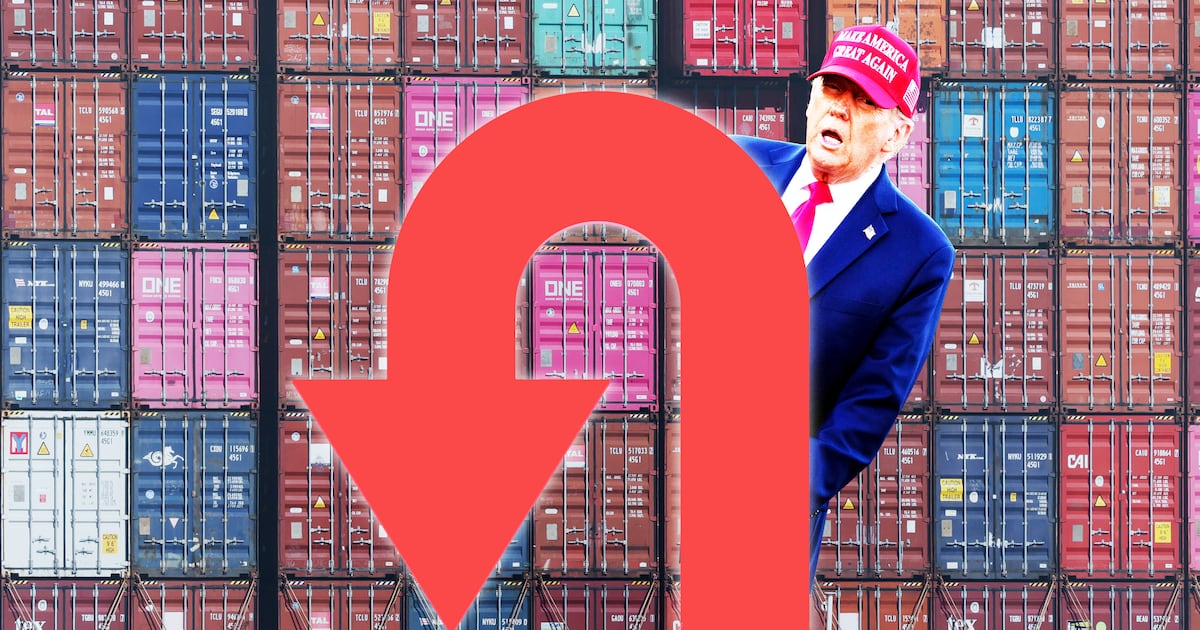They are some of the bluest states in the nation, places where Democratic presidential candidates don’t even bother to campaign, where unions still dominate, and where the flame of MSNBC burns bright.
And in a couple of months, they could all have Republicans in their statehouse.
Take Hawaii, which hasn’t voted for a Republican for president since 1984 and which Barack Obama won by more than 40 points in 2012. Recent polls put Republican former lieutenant governor James “Duke” Aiona over his Democratic opponent by seven points. Or Illinois, which Obama won by 17 points and which hasn’t swung Republican for president since 1988. There, Republican businessman Bruce Rauner has opened up an eight-point lead over Democratic incumbent Pat Quinn—the closest Quinn has come in months. Meanwhile, in true blue Massachusetts, a state that is conservative shorthand for liberal licentiousness, Republican Charlie Baker has edged ahead of Attorney General Martha Coakley in recent polling.
“Everything has to go well, and even if it does, it’s going to be really close,” said Mike Duhaime, an adviser to the Republican Governors Association. “In order to win in these kinds of states where you are so outnumbered, you need to win independents overwhelmingly, bring out your base, and get a good chunk of conservative to moderate Democrats.”
Duhaime helped create a blueprint for a Republican winning in a Democratic state as part of the team that steered Chris Christie to victory in New Jersey in 2009. But the adviser pointed out that the next year, while Republicans grabbed the governor’s mansions in purple states like Michigan and Pennsylvania, they remained mostly shut out in deeply Democratic states, a record Republicans hope they can improve on this time around.
Of the three states, Illinois seems most likely to elect a Republican in November. Unlike the challengers in Hawaii and Massachusetts, Rauner is a political neophyte and was a relative unknown when he began his campaign last year. Illinois Democrats sensed early on that Quinn was vulnerable. Attorney General Lisa Madigan made noises about running, and former White House chief of staff William Daley declared his candidacy before eventually dropping out over concerns that a costly primary would weaken the nominee.
Now Quinn is taking some of the nation’s lowest gubernatorial approval ratings into November in a state that has been governed by a Democrat since 2003, when the now convicted felon Rod Blagojevich was sworn into office.
“In Illinois our situation is unique and isn’t affected by national politics so much,” said Pat Brady, a former chairman of the Illinois Republican Party. “This state is so screwed up, and it has been under iron-fisted control by the Democrats for the last 12 years. There is nothing good going on here.”
In Massachusetts, Baker is making his second bid for office after failing to unseat Gov. Deval Patrick in 2010. This time around, Bay State politicos say Baker, a health system CEO and former aide to Republican Gov. William Weld, has shed his wonky image in favor of soft-focus ads featuring his family, or the candidate high-fiving children and hugging small-business owners.
“I think Baker’s chances are strong,” said Conor Yunits, a Massachusetts-based Democratic consultant. “He doesn’t have much of a margin for error given the Democratic lean of the electorate, but he seems a better candidate than he was four years ago.”
Massachusetts has not hesitated to elect Republicans to statewide office in the past. Until Patrick came out of nowhere to win in 2006, Republicans had a hold on the governor’s mansion that dated to the days of Mike Dukakis. The playbook Baker is using is not so different from the one his former boss Weld used when he won back in 1990: running up large margins among conservatives in the western part of the state and along the New Hampshire border, and raking in money from wealthy, Republican-leaning donors in the Boston suburbs.
Plus, Baker is doing one thing the same as his counterparts in Illinois and Hawaii, and that Republicans on the coast must all do to some degree or another if they hope to be victorious: downplay social issues to the point where there is almost no difference between the Republicans and Democrats on issues like gay rights and reproductive health. If both candidates favor abortion rights and gay marriage, the thinking goes, even left-leaning independents will prefer to vote for the candidate who pledges to reduce their taxes.
“Voters are smart. They know what are state problems and what are state solutions, and what issues are federal issues,” said Duhaime. “And most of these social issues are addressed at the federal level.”
The surprisingly close statehouse races come as ticket-splitting—voting Republican for one office on your ballot, Democrat for another—is at a 92-year low. And that is not just true in blue states, even if in 2014, when Obama faces a low ebb in his popularity, it remains more likely for a Republican to win in a Democratic state than vice versa.
Yet Democrats still could see gains in some of the nation’s most unlikely territory. In Nebraska, Democrat Chuck Hassebrook is within striking distance of Republican Pete Ricketts. In Kansas, which has voted for a Republican for president since 1964, incumbent Republican Gov. Sam Brownback’s reelection bid is now rated a toss-up. In Alaska, which also has been straight Republican since the Johnson-Goldwater contest, incumbent Republican Gov. Sean Parnell finds himself in deep trouble now that the independent and Democratic candidates have merged their tickets.
Political professionals say this momentary scattering of political allegiances reflects a larger frustration with Washington, D.C.-style politics and a belief that statehouses can remain laboratories of democracy. After all, if the party you keep voting into power does not deliver, why not try something else?
“People are just fed up,” said Brady in Illinois. “They understand why these elections matter.”





